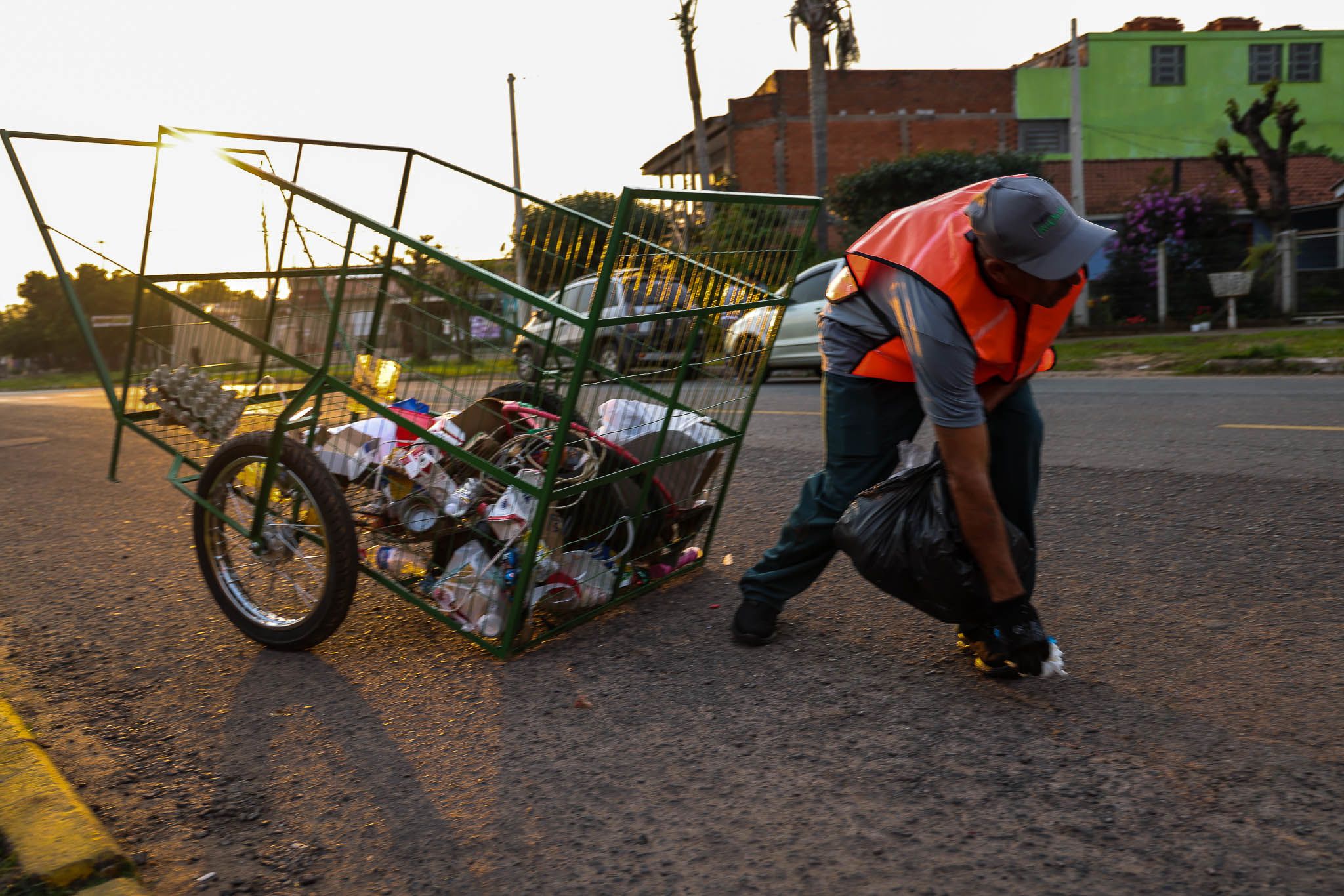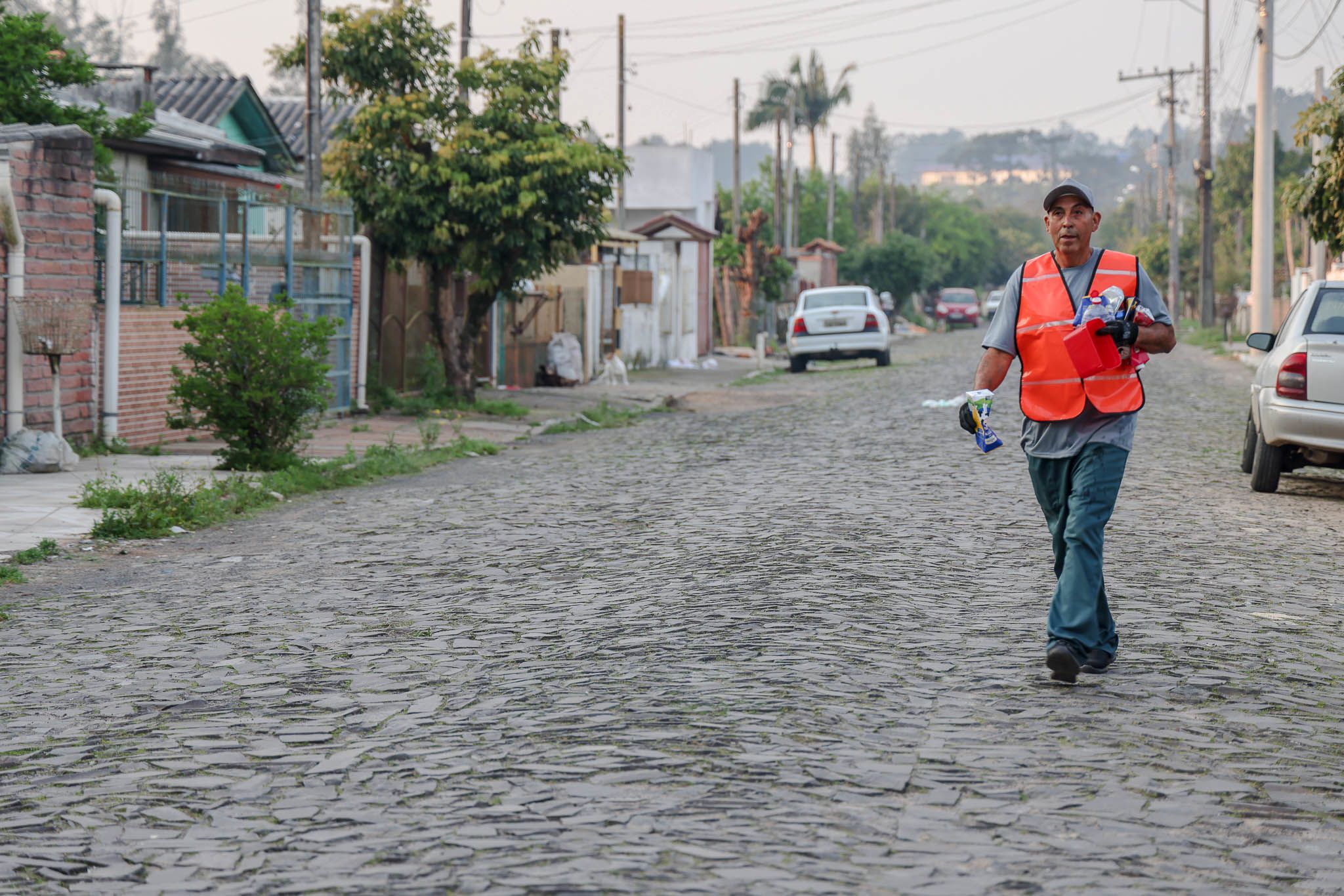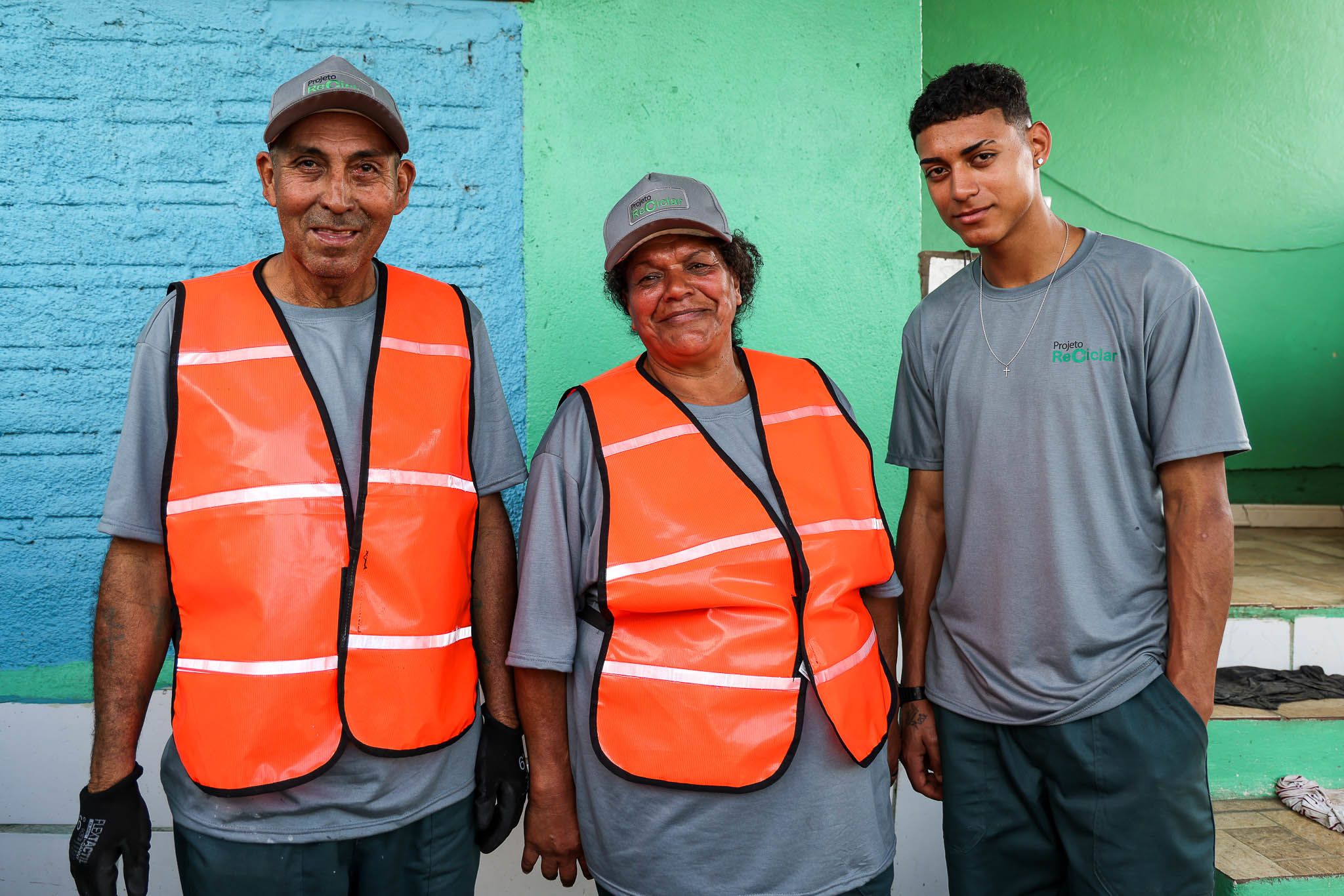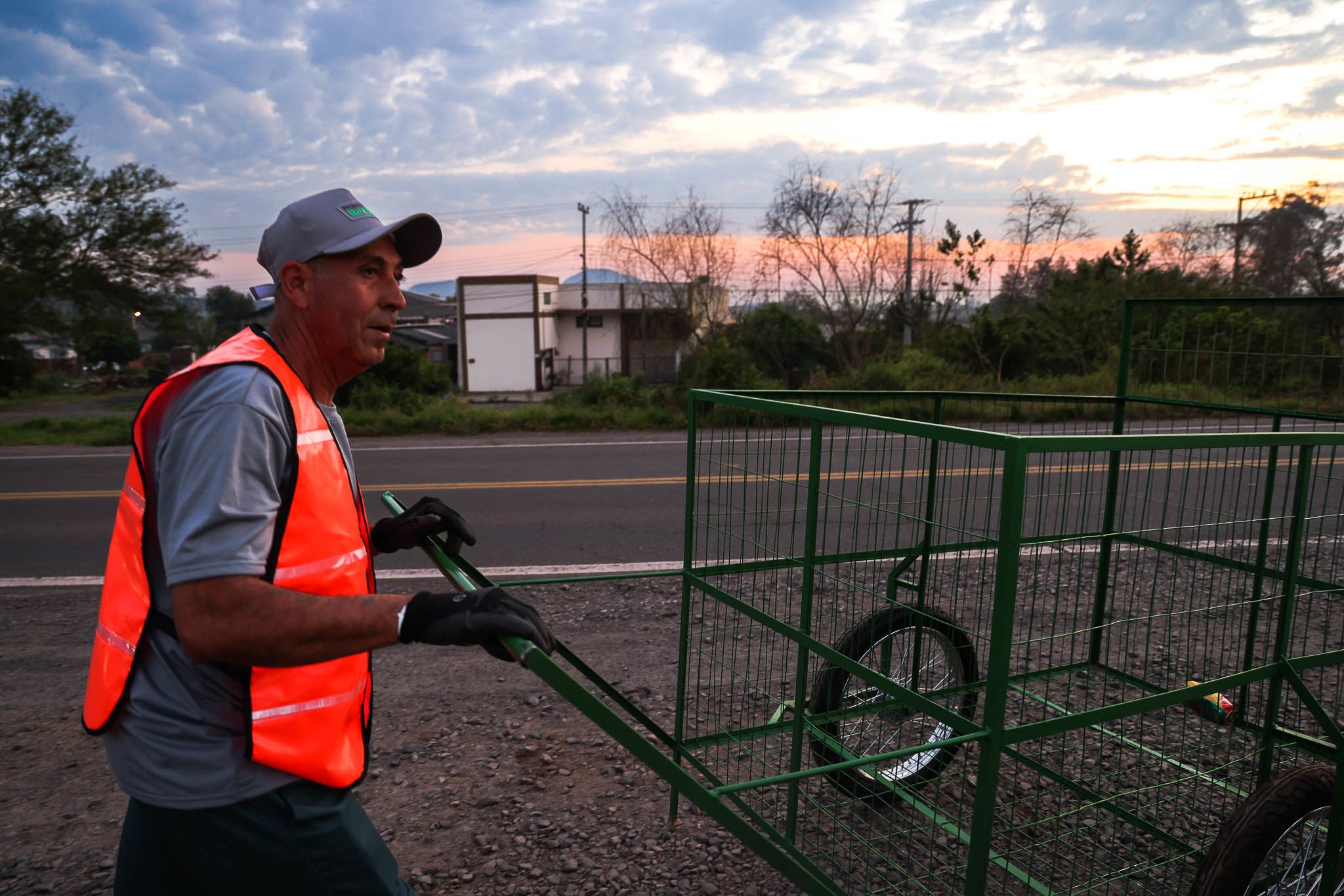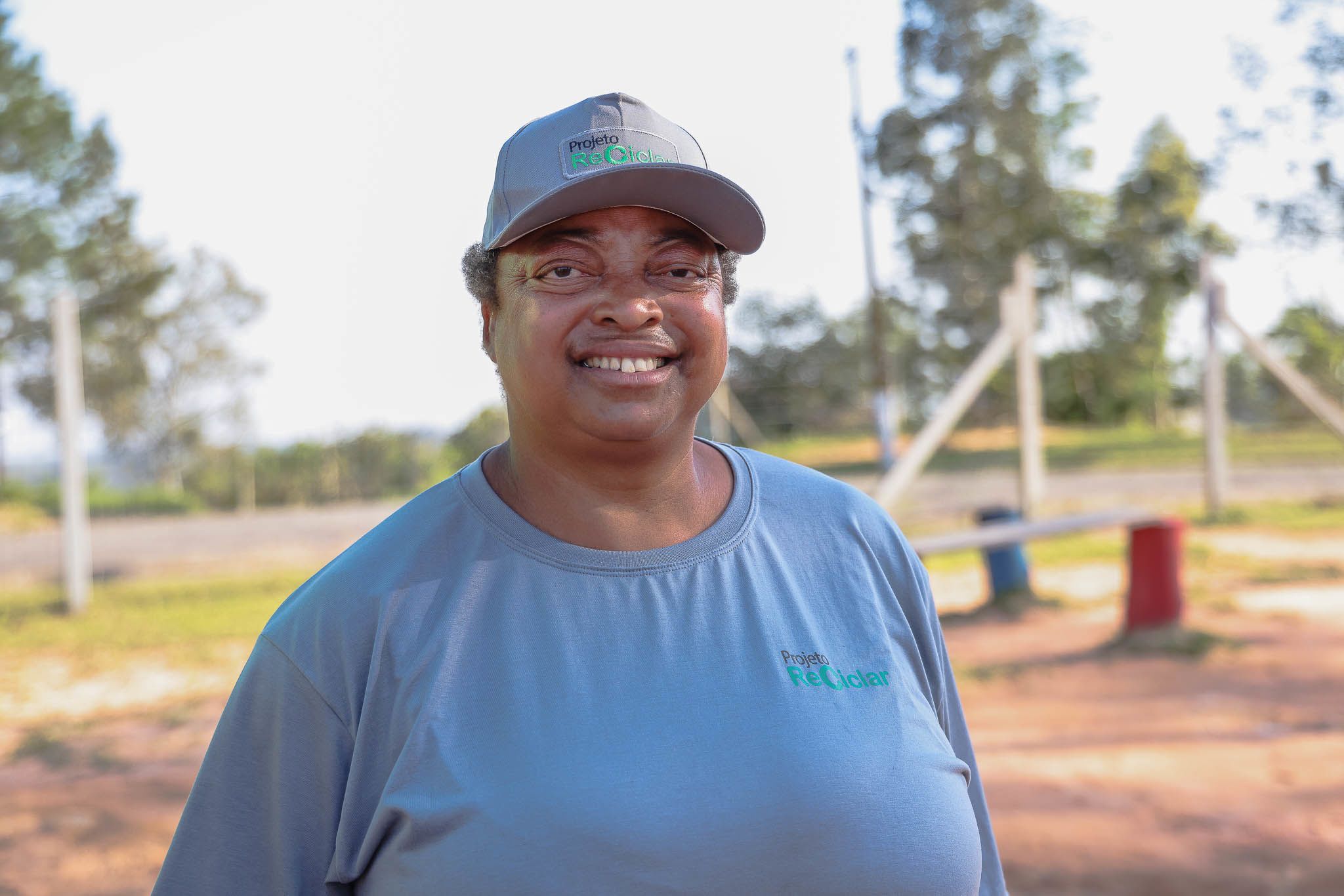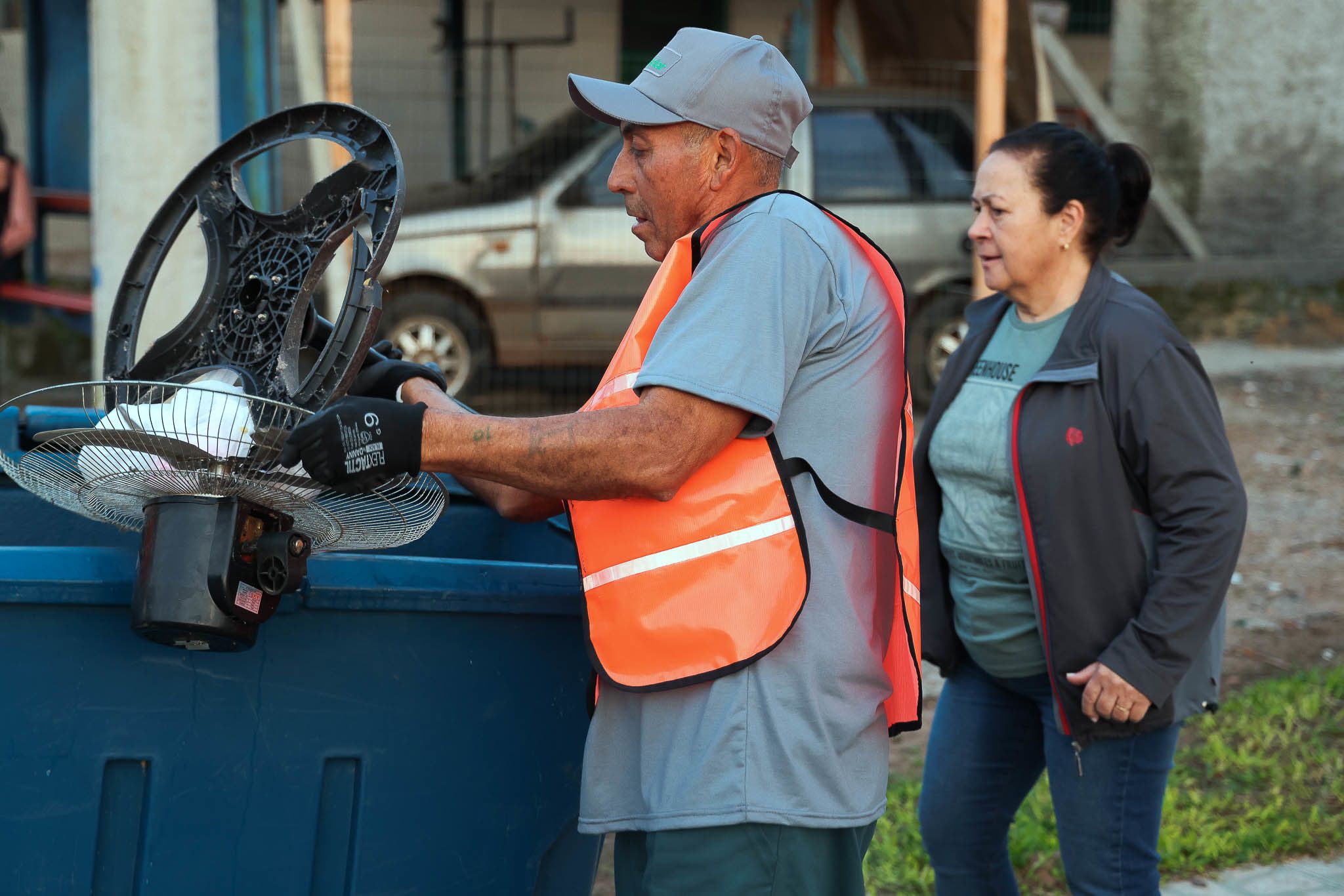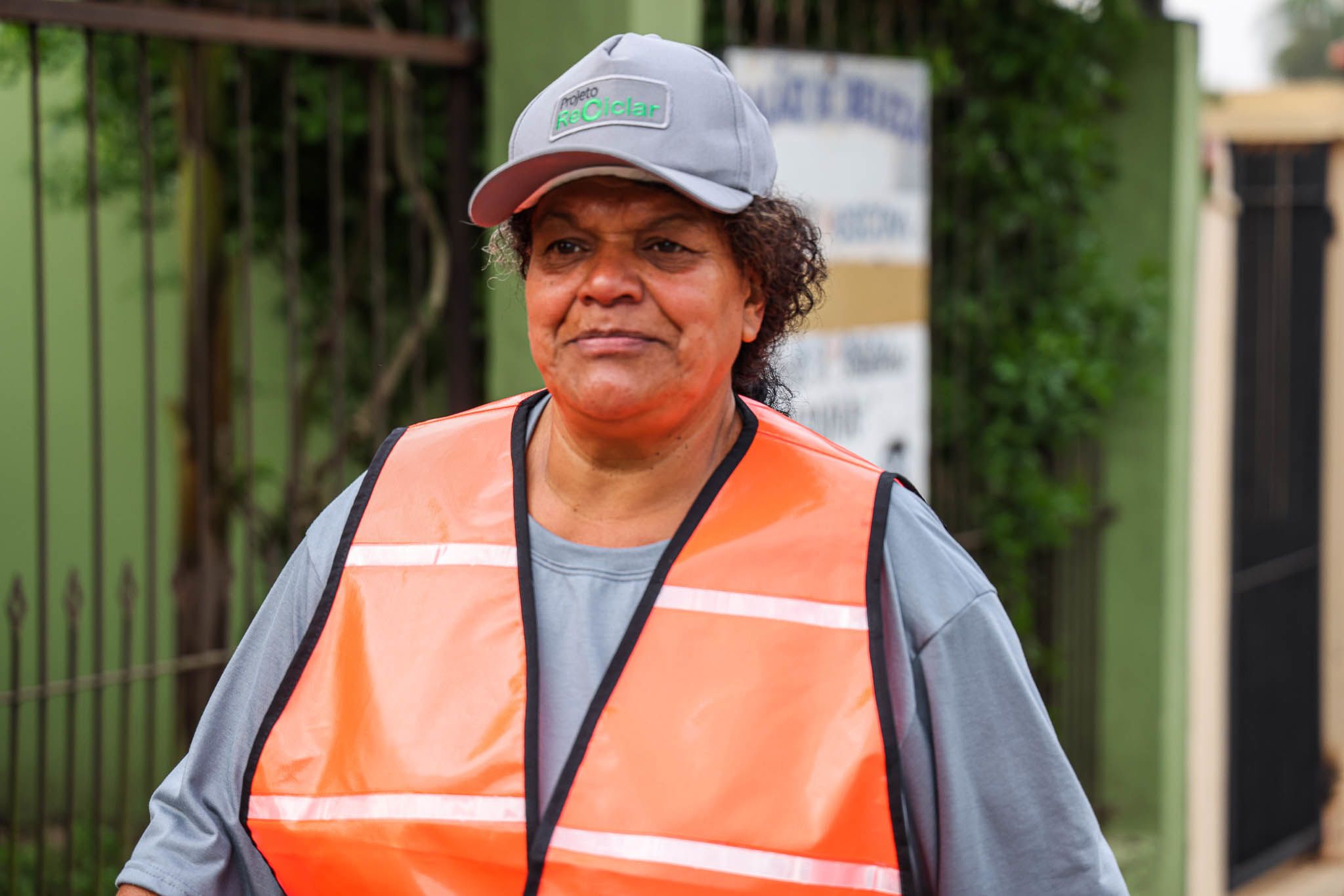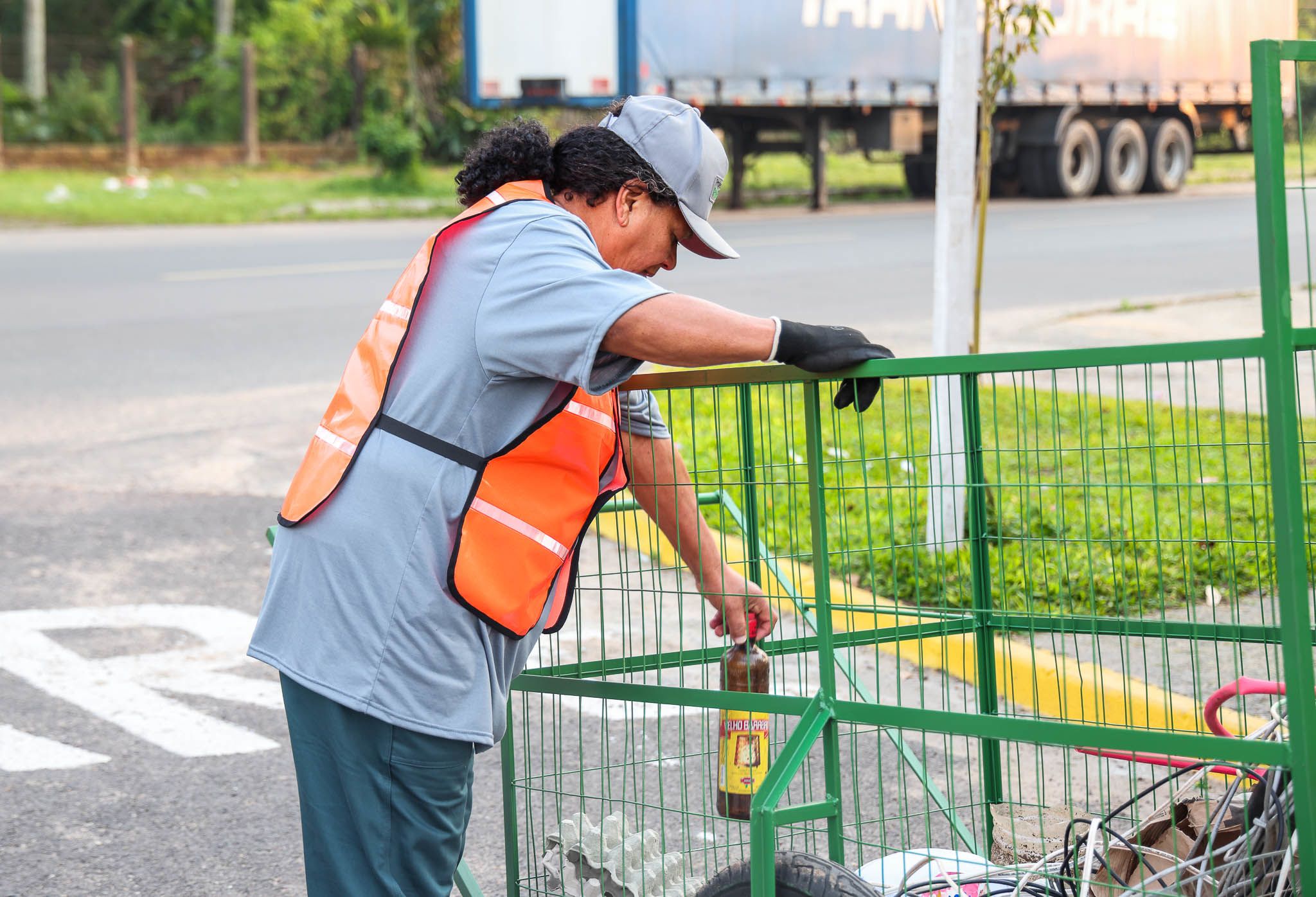A Day in the Life of Recyclers
Montenegro, Rio Grande do Sul, Brazil
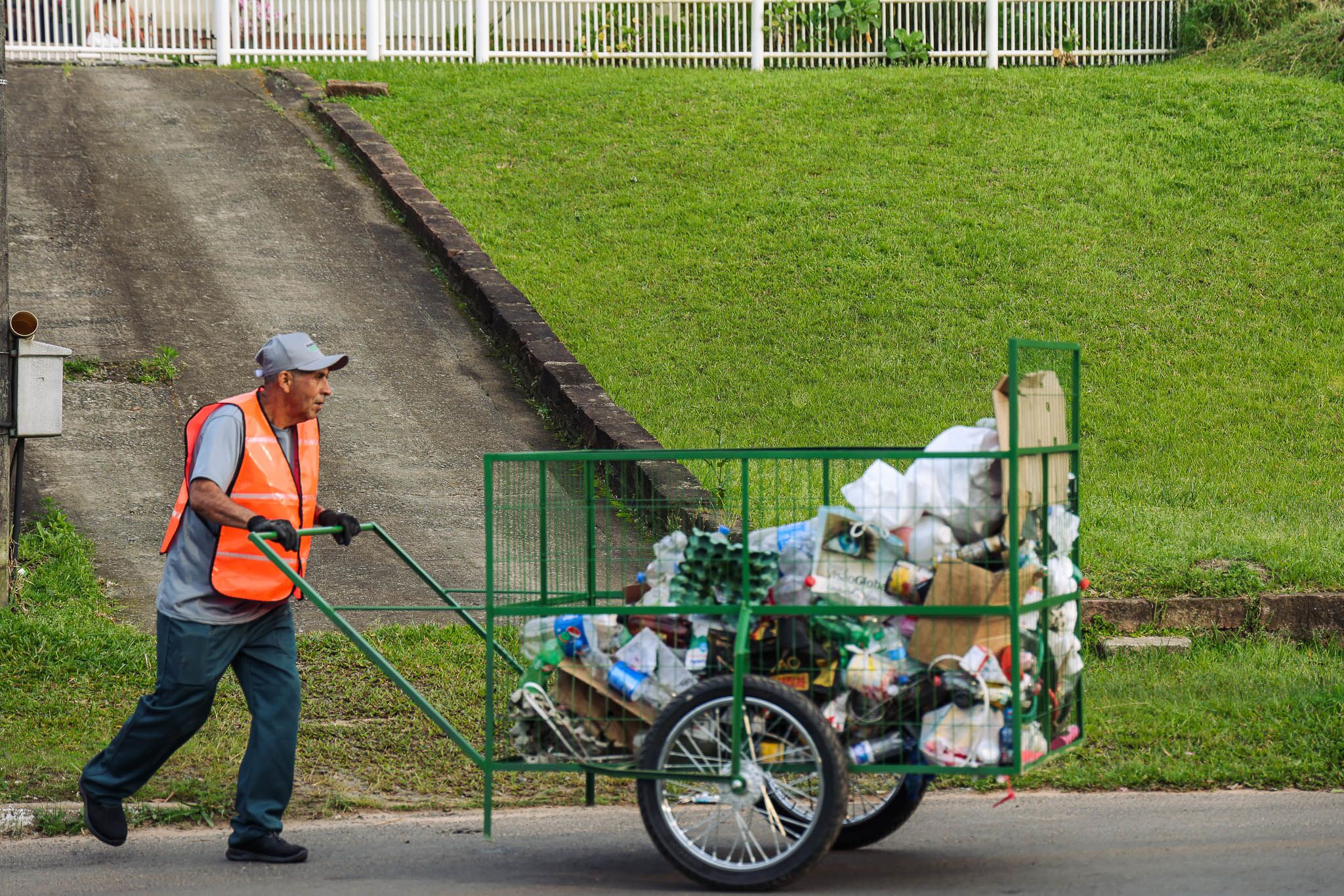
5:00 am

Eloi (63), Florentina (57) and their son Daniel (16) Tavares are awake and preparing for their day before sunrise on most days, and today is no exception. By 5 a.m., they are already dressed in their new Projeto Reciclar (“The Recycle Project”) uniforms, which they obtained the day before from Global Communities Brasil during their graduation from Projeto Reciclar’s training program.
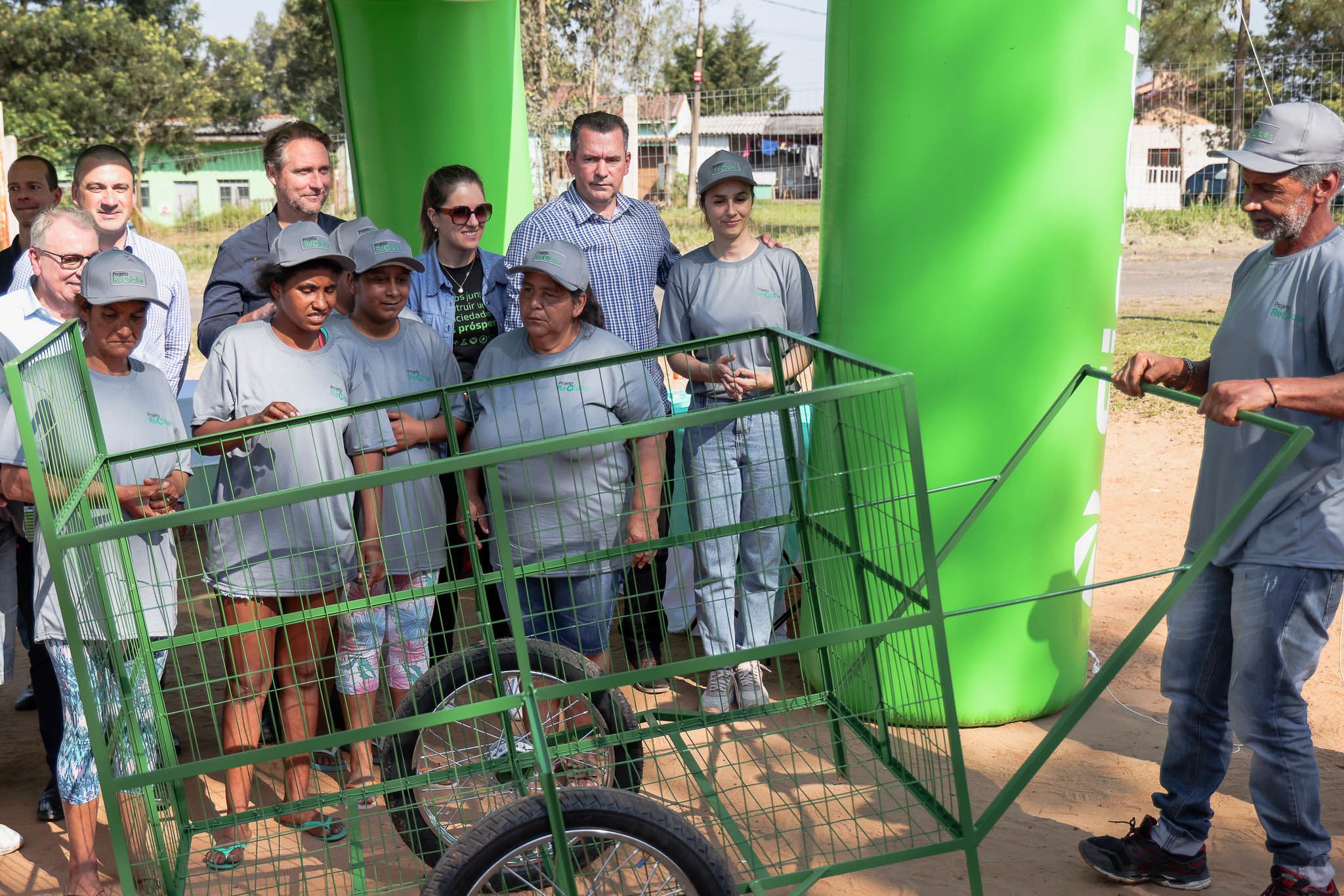


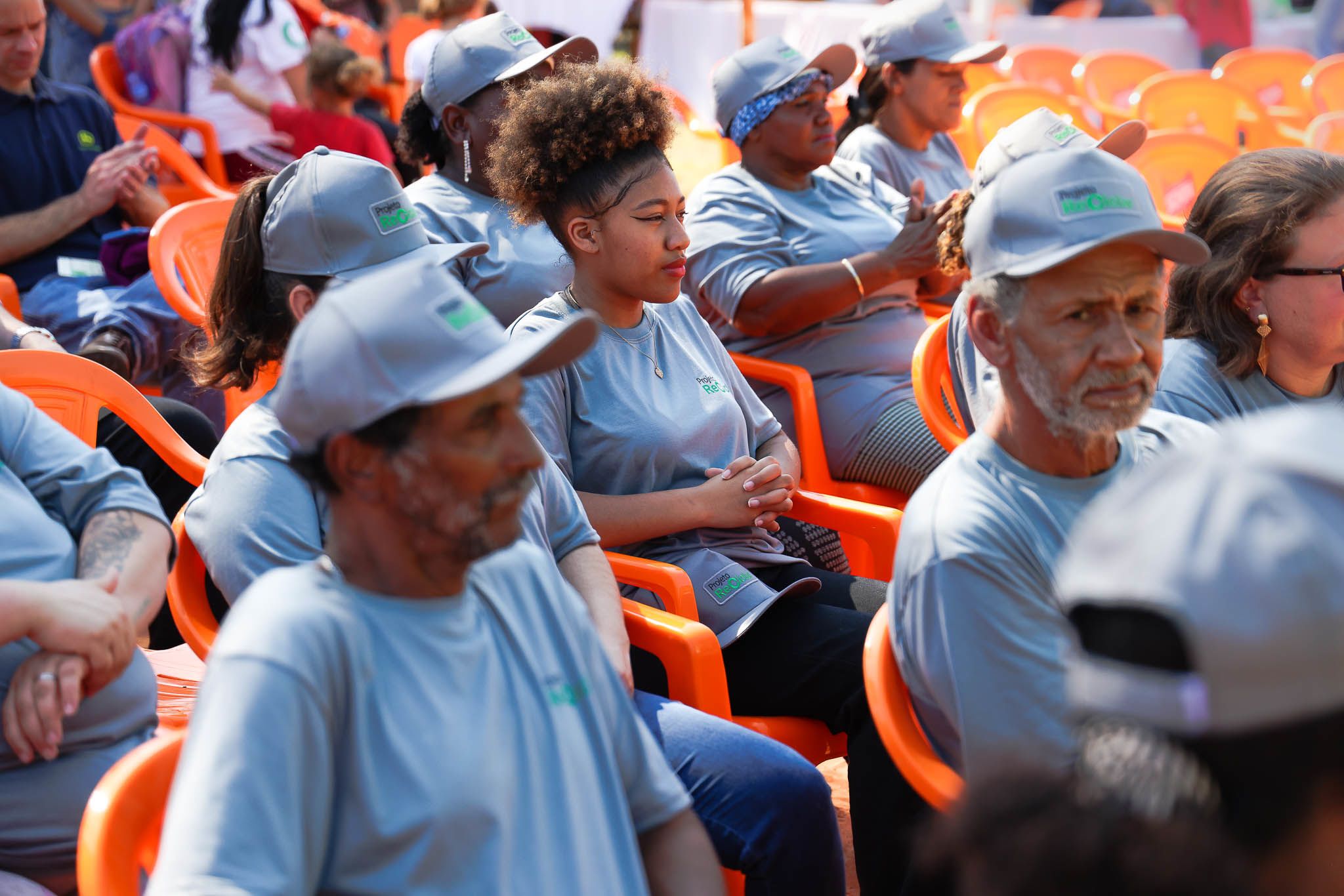
Professionalizing Recyclers
In coordination with community leaders and key partner John Deere Brazil Foundation as well as supporting organizations such as Tanac, Biocitrus Poker, Sicredi and the local municipality, Global Communities Brasil offered training courses to show recyclers successful examples of cooperatives and opened a space where participants could exchange ideas about what a cooperative might look like for them.
Participants in Projeto Reciclar took part in professional courses led by Global Communities Brasil and our partners that covered topics such as interpersonal relations and teamwork, personal and family finances, the history of recycling and waste pickers, redefining solid waste, and the importance of the work of collectors.
Members also learned professional skills such as entrepreneurship and the classification, processing and organization of waste products.
Lastly, the group participated in strategic planning sessions to think about sustainable development strategies for solid waste management in their city and plan for networking with local actors for the integrated management of municipal solid waste.
Participants received diplomas in August 2022.
By the Numbers:
- 8 signed partnerships;
- 26 certified recyclers;
- 31 participants who received personal protective equipment (PPE) and uniforms;
- 11 recyclers who received carts;
- More than 1,000 residents in the neighborhood.
While Florentina stirs a cup of instant coffee, Eloi prepares the bright orange reflective vests they will wear while collecting recyclables in Montenegro this morning.
They enjoy a few sips of chimarrão and chat before donning their gloves and heading out the door. The couple and their son will walk several miles today looking for recyclables.

"We need to make people aware that putting garbage in inappropriate places is wrong and that it’s not good for our environment.
The Tavares have long been part of an informal network of waste pickers who spend long mornings and backbreaking hours gathering discarded materials in the streets of their cities—things like cardboard, scrap metal and aluminum.
The Tavares have long been part of an informal network of waste pickers who spend long mornings and backbreaking hours gathering discarded materials in the streets of their cities—things like cardboard, scrap metal and aluminum.
They open the gate and Eloi rolls out their brand-new collection cart, also provided by Global Communities Brasil and project partner John Deere Brazil Foundation. This cart could carry up to 600 pounds of materials by the time they return home later today. The carts improve their capacity to gather materials as well as their ergonomy while they pick, improving both their economic prospects by collecting more and their health by reducing risk factors to their bodies.
The Tavares family has long been part of an informal network of waste pickers who spend long mornings and back-breaking hours gathering discarded materials in the streets of their cities—items such as cardboard, scrap metal and aluminum.
Prior to working with Projeto Reciclar, the Tavareses, like many other families, stored gathered materials in their courtyards in a way that was hazardous to their health. Through Projeto Reciclar, Eloi, Florentina and Daniel learned to improve their living and working conditions. While they still store the gathered materials in their courtyards, they do so in a way that is sanitary and protects their family's health.
In addition to receiving training to improve their livelihoods, the group, now consisting of 26 families, has worked together to sectionalize the city so they can cover more ground, gather more material and generally be more efficient as a cooperative.
Eloi, Florentina and Daniel are part of an estimated 800,000 trash recyclers who collect 90 percent of Brazil’s recyclables. Still, they remain largely undervalued in their communities.
Many Brazilian cities lack formal recycling programs, so catadores (recyclers) play a crucial public service and an important role in protecting their environment.
Hope for the Future
Hope is the word Pedra Olina da Silva (57) uses to describe how she feels after graduating from her Projeto Reciclar training program. For five months, she and another 30 community members underwent training provided by Global Communities Brasil in partnership with the John Deere Brazil Foundation and supporting organizations.
Prior to participating in this program, Pedra says that her life was much more difficult. “Our self-esteem was low,” she says.
The culmination of the training was only the second stage of Projeto Reciclar, which has already moved into stage three by officially filing for cooperative status with the city.
For Pedra and others in the community, the newly established cooperative will bring opportunities for a stable income and dignified livelihood.
Today, the recyclers see their role in the community differently and find purpose in their contributions to protect the environment through recycling as well as keep their community clean and healthy.
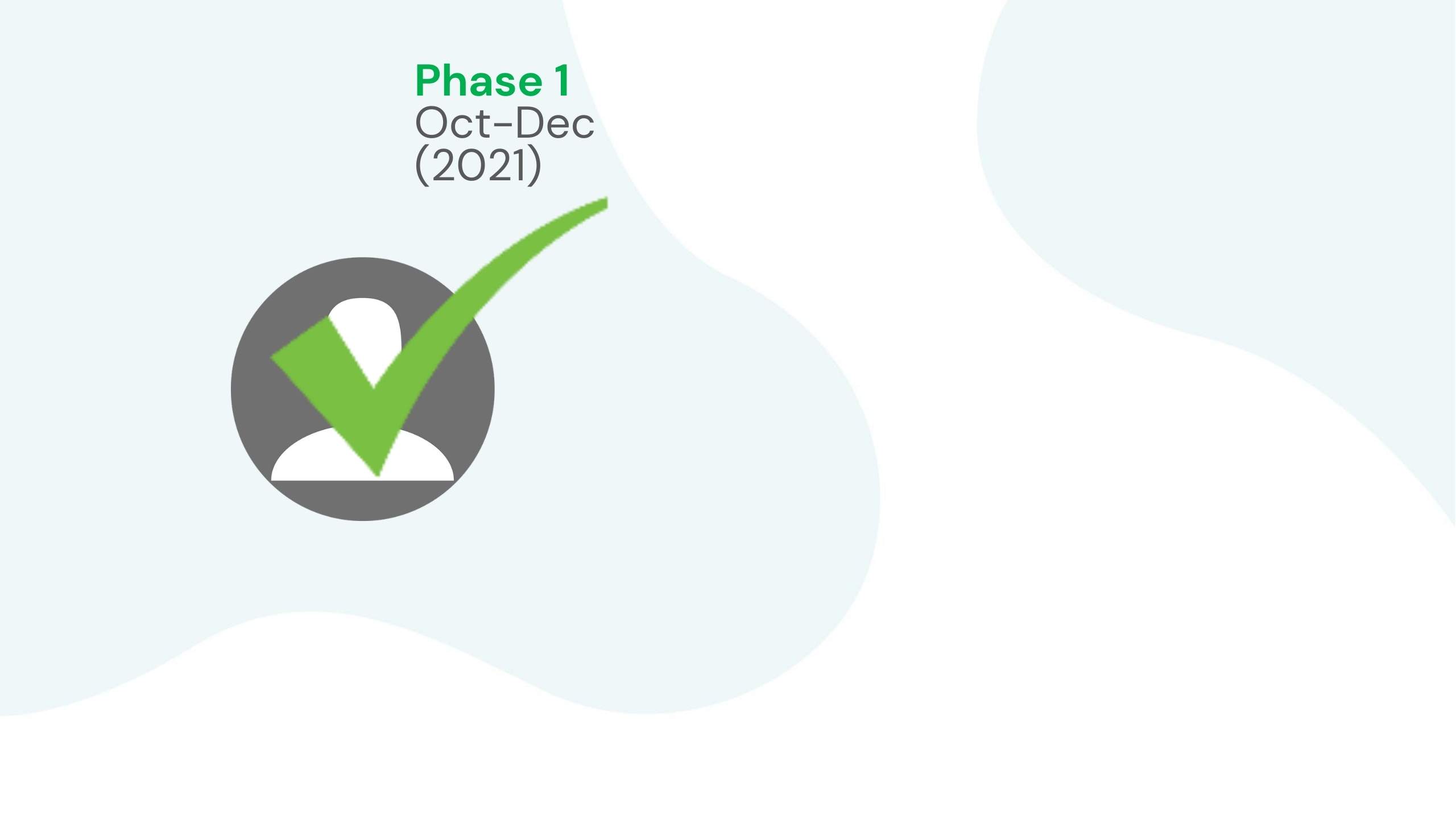
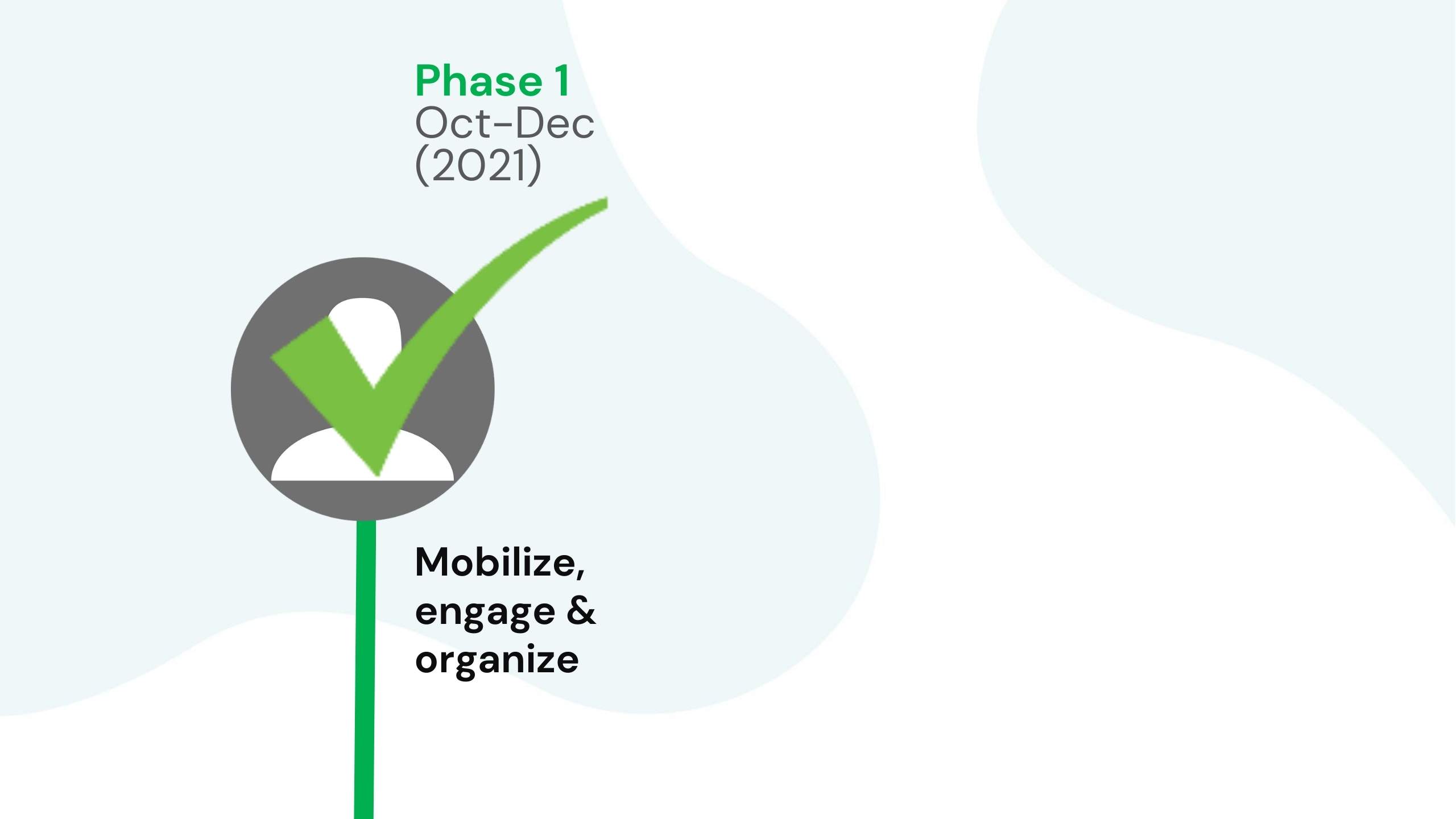
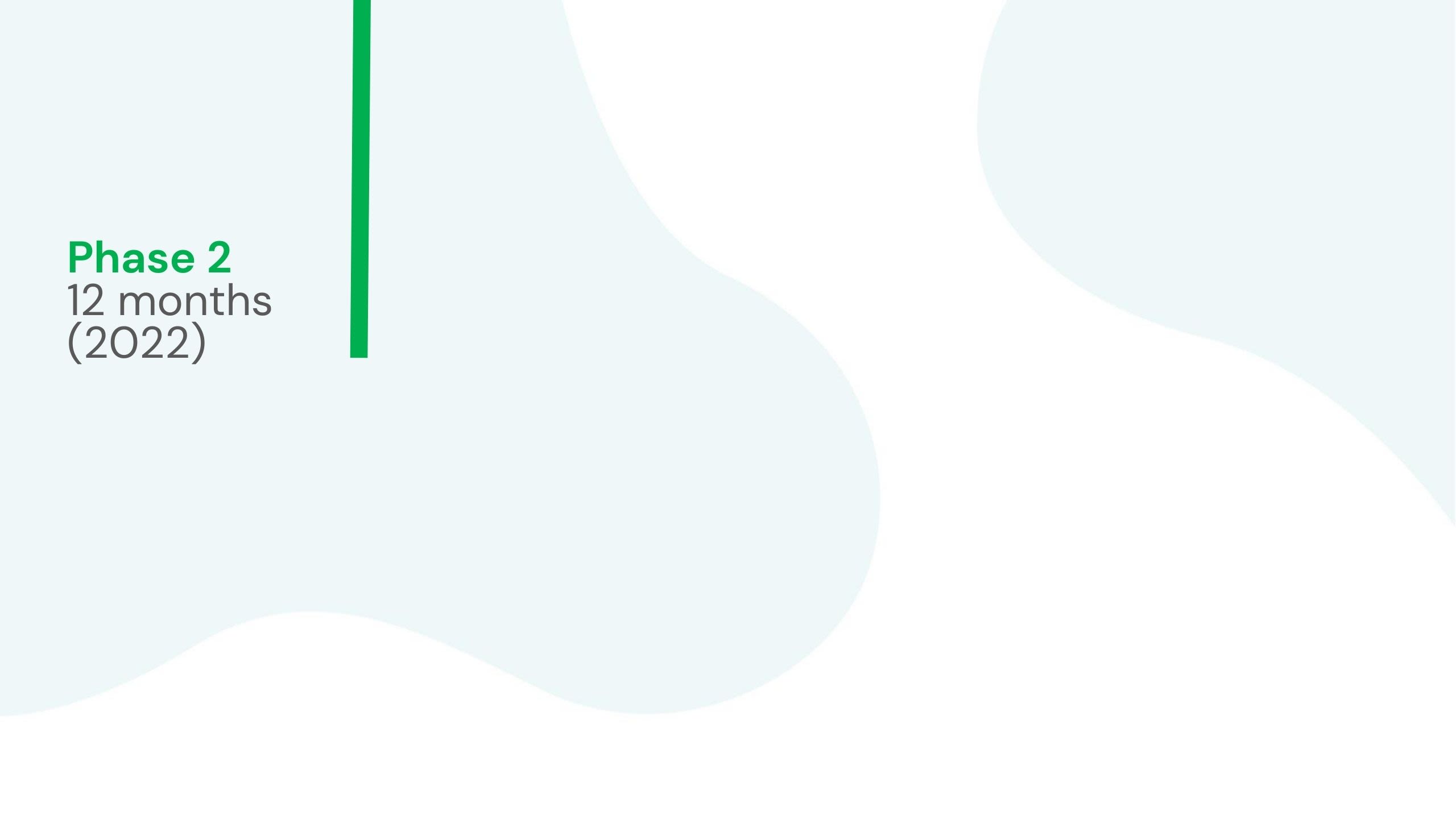
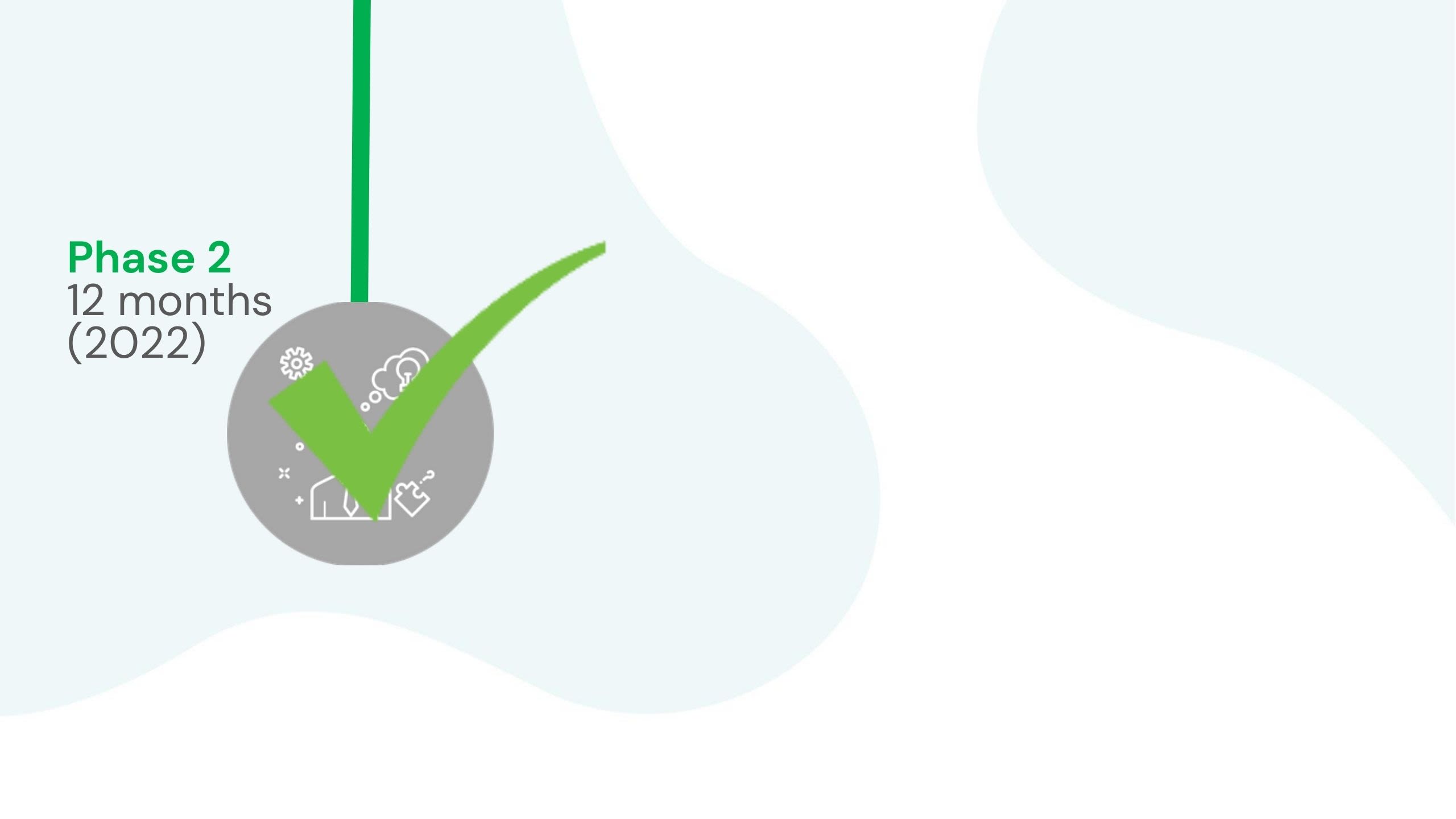
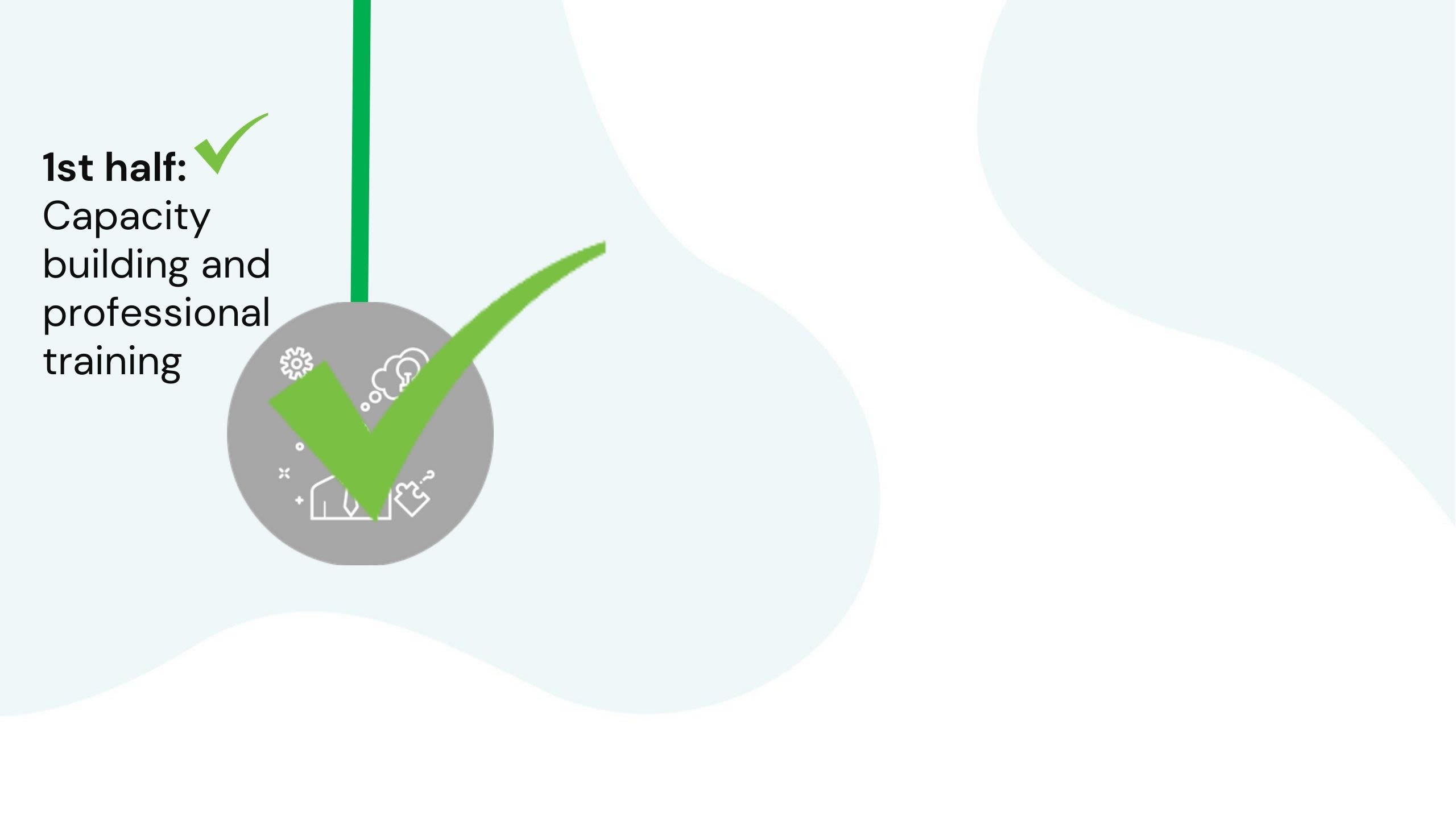
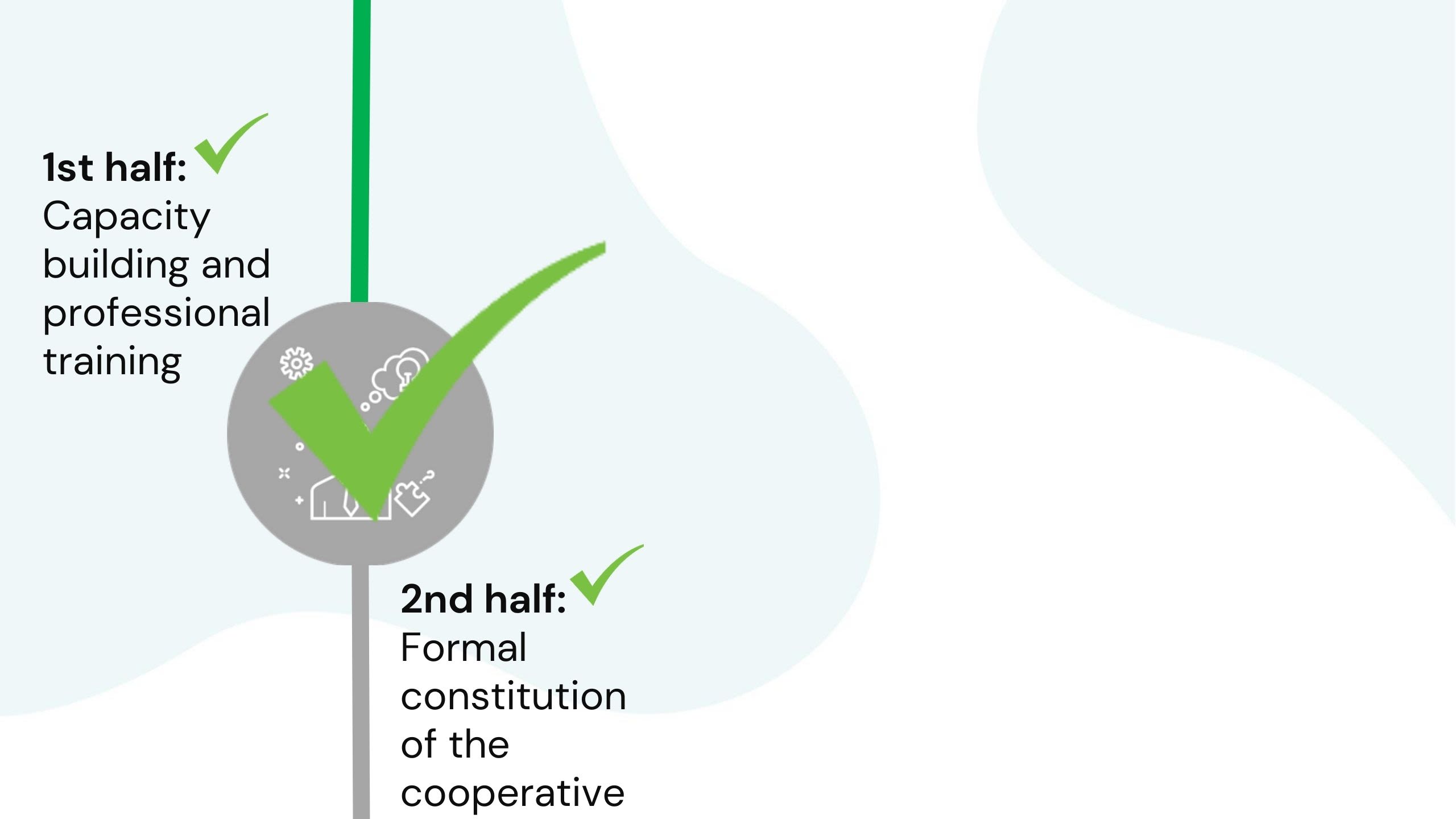
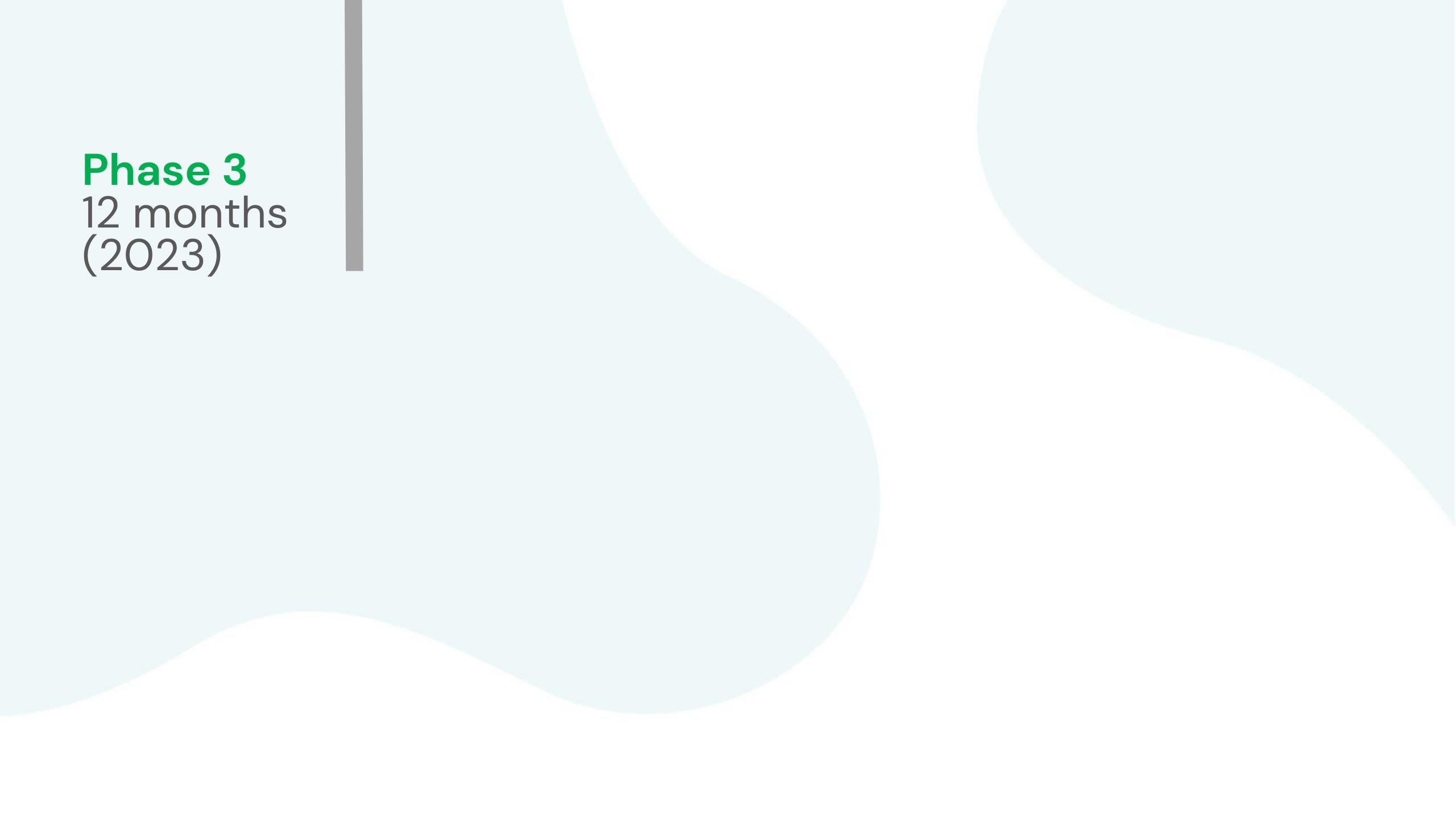
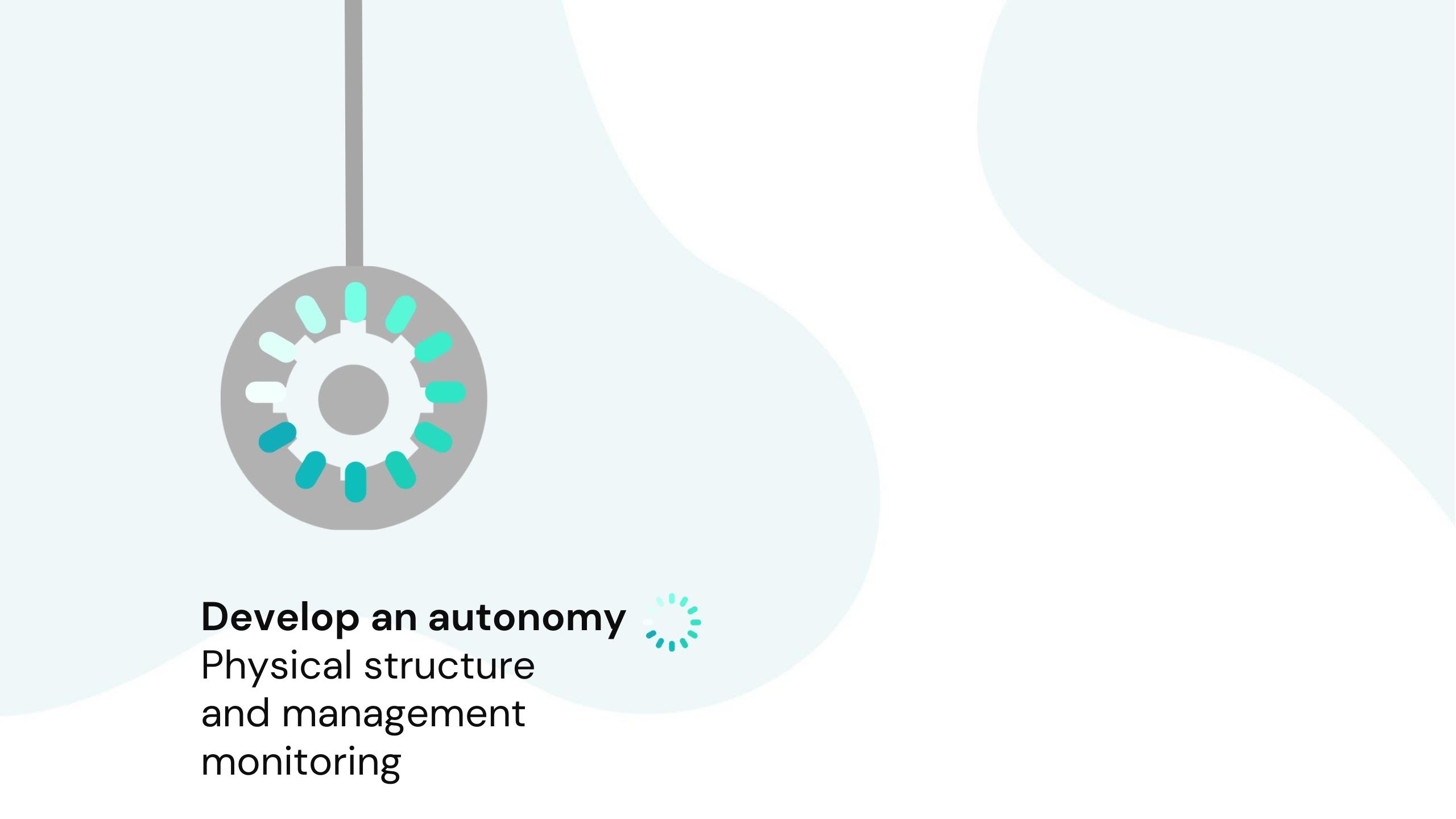
“For us, this cooperative will be very gratifying, because the staff will have a place to work with recyclable materials. We are often discriminated against and humiliated in the streets, so the cooperative will bring a lot of dignity. For us, it will be very good.
7:00 am

As the sun rises, the three walk on the side of the road, cars and buses zooming past. The safety vests help keep them visible to drivers, but they still worry about their safety. And as they look in the garbage bins, passersby watch with various expressions—curiosity, disdain and sometimes a smile or kind “good morning.”
Eloi, Florentina and Daniel are in a race against time, they say, as they want to gather materials before the official city garbage collectors come with their truck. Occasionally, they have the chance to interact and ask them to leave behind items that could be turned into recycling like this old fan.
This morning, the Tavareses do not run into any of the other catadores from Projeto Reciclar.
Construction zones also prove to be a good source for recyclables, including cables and plastics.
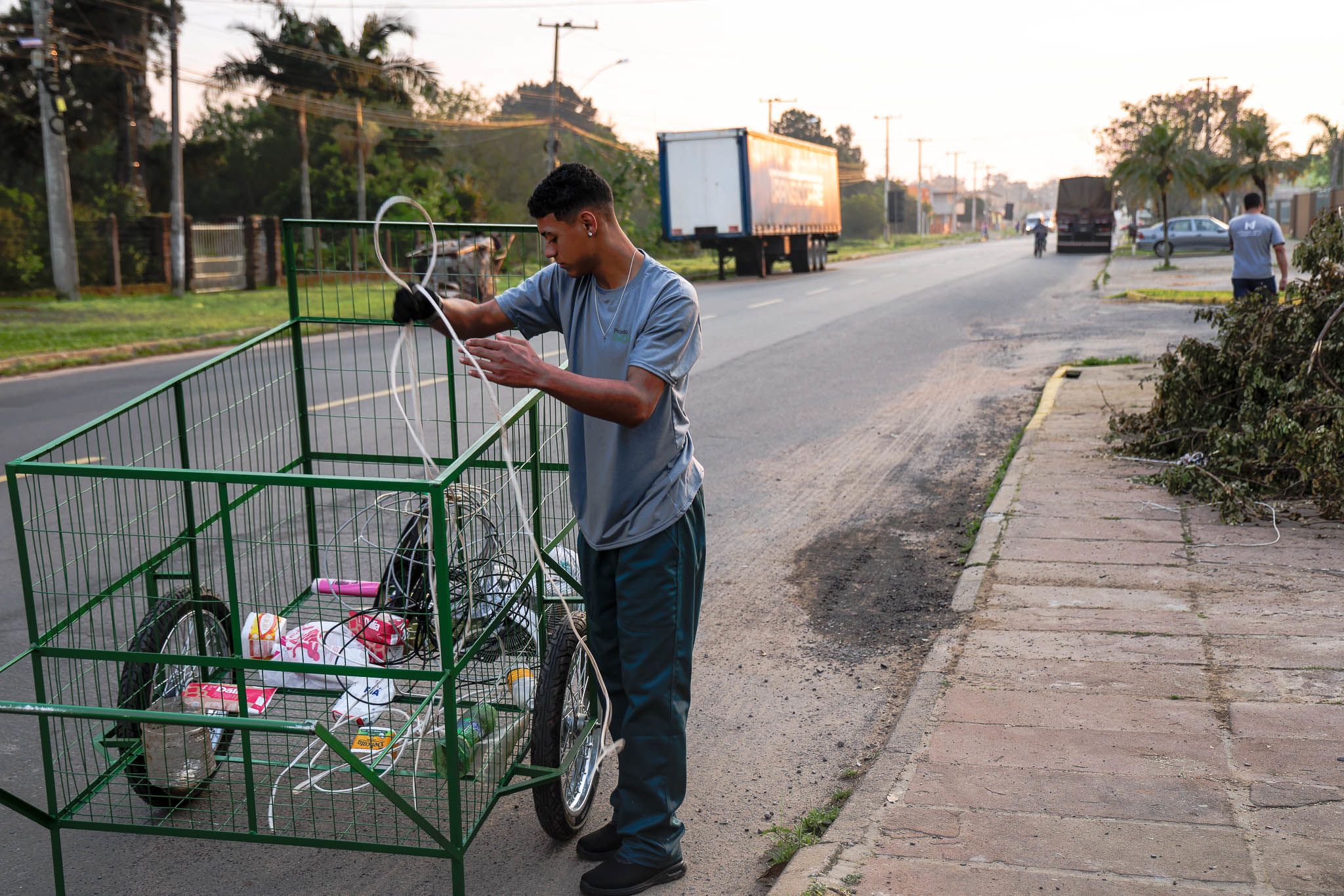
Some homes know exactly how to prepare the recycling for the catadores. Eloi is pleased to see this family has their recycling organized and ready for pick up.
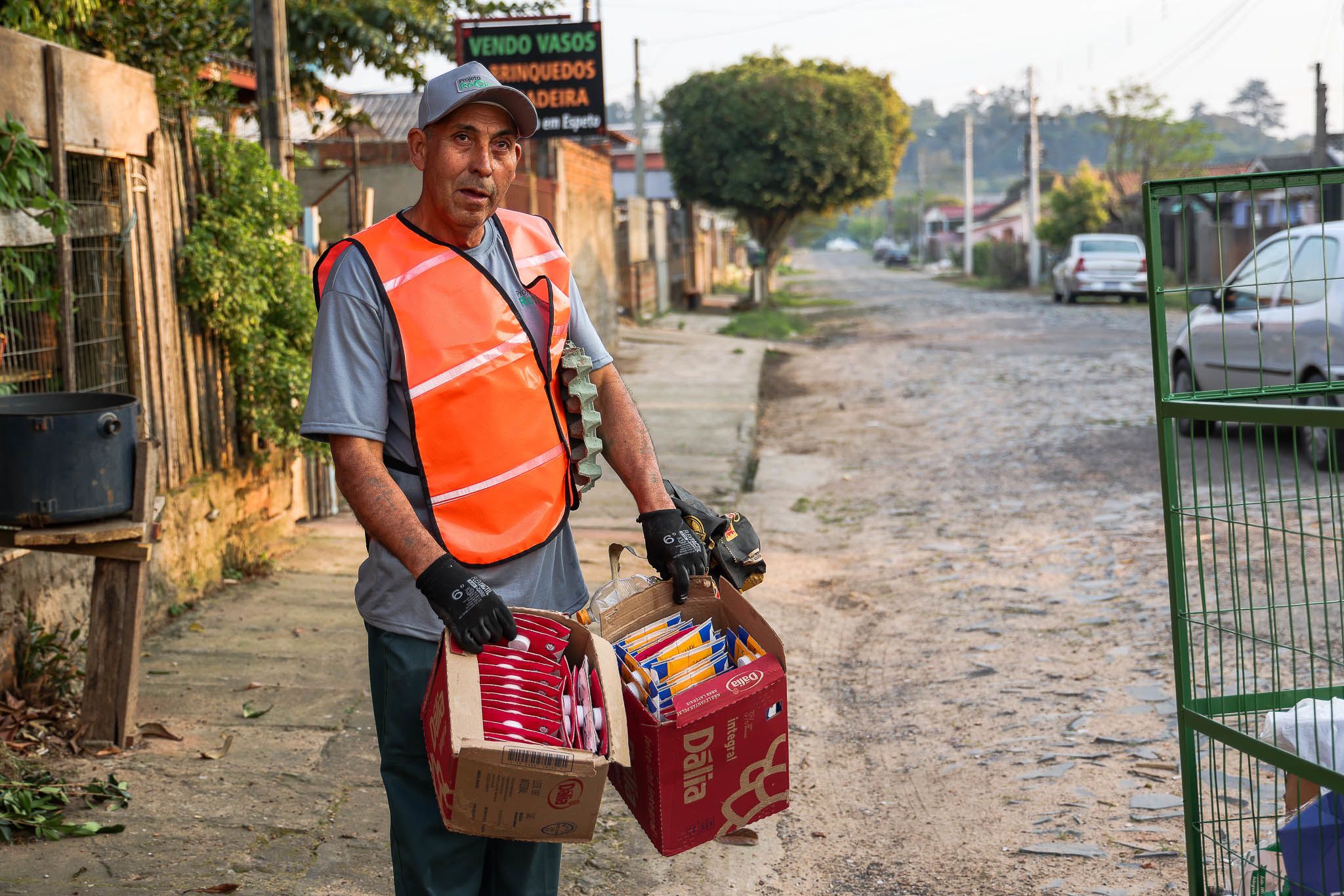
9:00 am

Around 9 a.m., the Tavareses move out of the residential areas they cover and move into a commercial section of the city. Maria Janete Bernardes Francisco, a volunteer with Projeto Reciclar and the president of the Projeto Reciclar cooperative, joins them and helps connect Eloi and Florentina to local business owners and employees who could hold on to waste and work with them to recycle.
After hours of back-breaking work and covering about four miles on foot, the Tavareses decide to head back home since their cart is overflowing with discarded materials. They arrive in their neighborhood and are greeted by their happy family dog as well as a cheerful “bom dia” from their neighbors who are already outside, enjoying the morning sun.
Eloi pulls the heavy cart into their yard and empties out its contents after drinking a glass of water, only to begin the next part of their work.
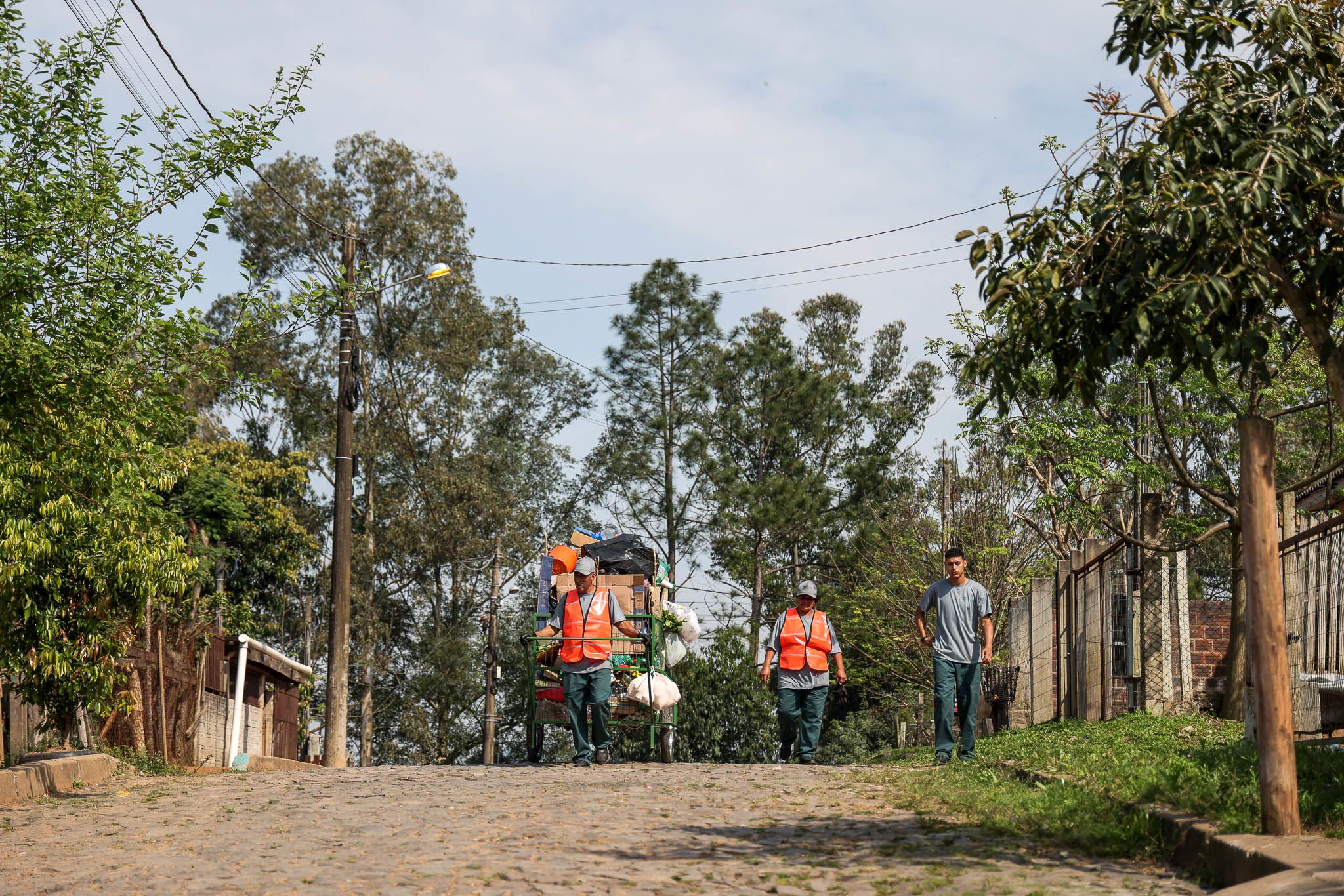
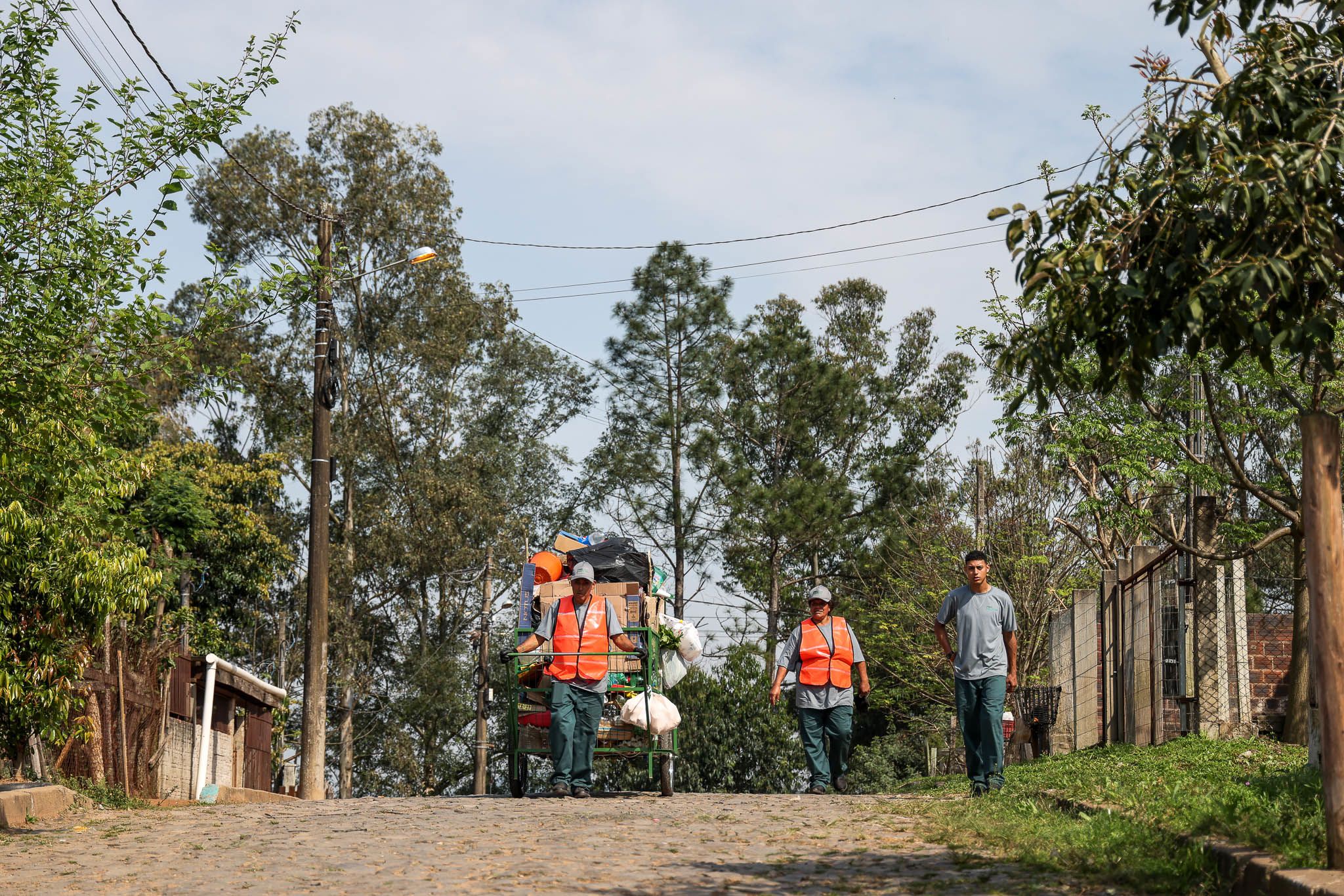
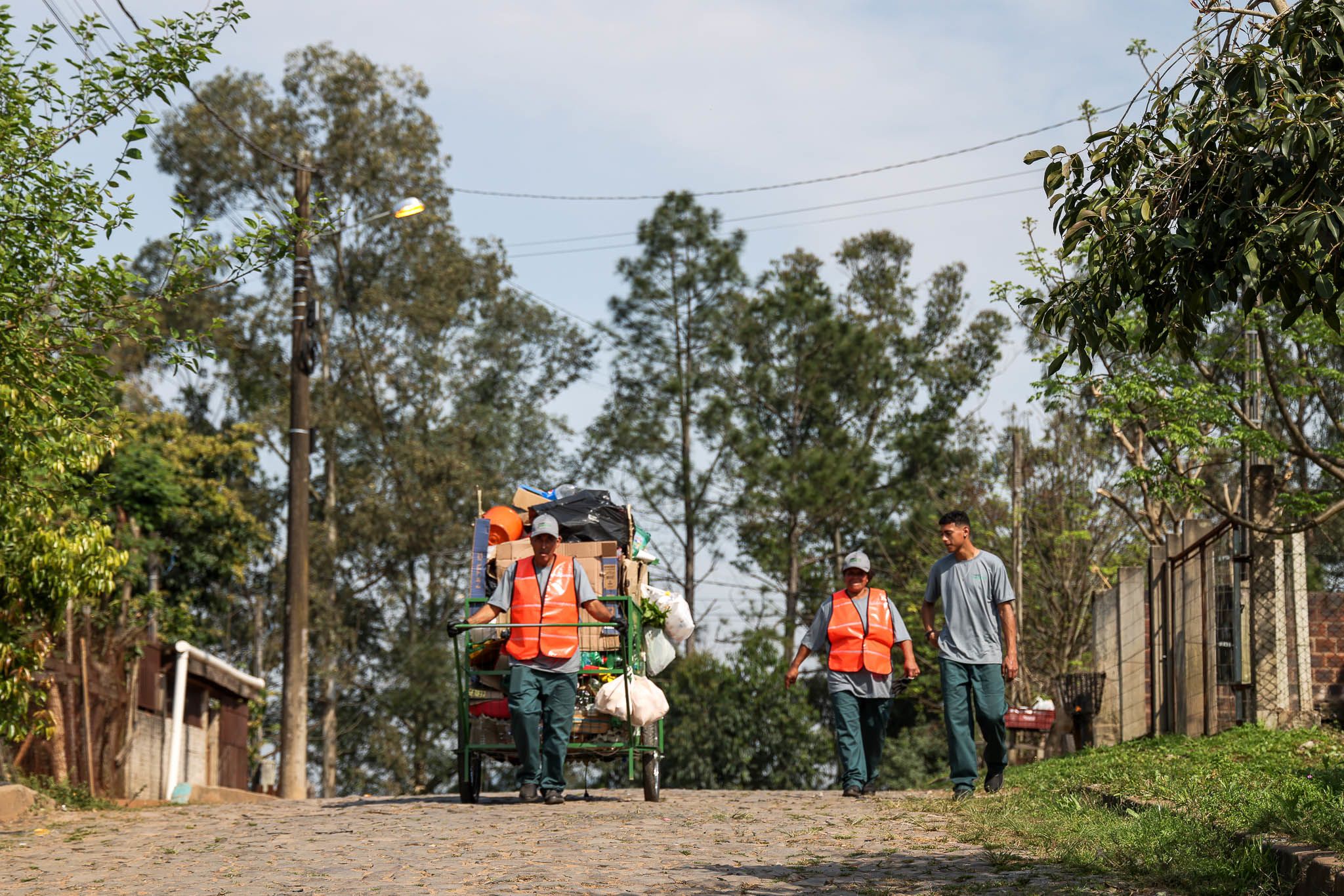
Sorting the recyclables is important for both the safety of their family and neighbors as well as for maximum profits from their hard work today.

“Since we've been on Projeto Reciclar, we've learned a lot about recycling and about waste management. We got the cart and many other things like improving our ability to earn, for example. In the past, when we worked for us, we had low earnings, but since we joined the project, we started to increase our income, which stabilized our house [and] our financial expenses. We’ve been able to pay a lot of bills with the money we received picking up with the new cart.
Projeto Reciclar began in October 2021 to improve recyclers’ living and working conditions in the city of Montenegro in Rio Grande do Sul in partnership between Global Communities Brasil and the John Deere Brazil Foundation.
Global Communities Brasil designed the project in collaboration with community members and is responsible for its coordination and implementation.

At a time when disasters and disruptions are becoming more common and catastrophic, Global Communities, together with our local partners, equips communities with the training, tools and resources they need to recover from crises and build long-term resilience in the face of constant change.
From prevention and adaptation to positive transformation, we focus on solutions that center local voices and expand opportunities for growth, leadership and advancement.



